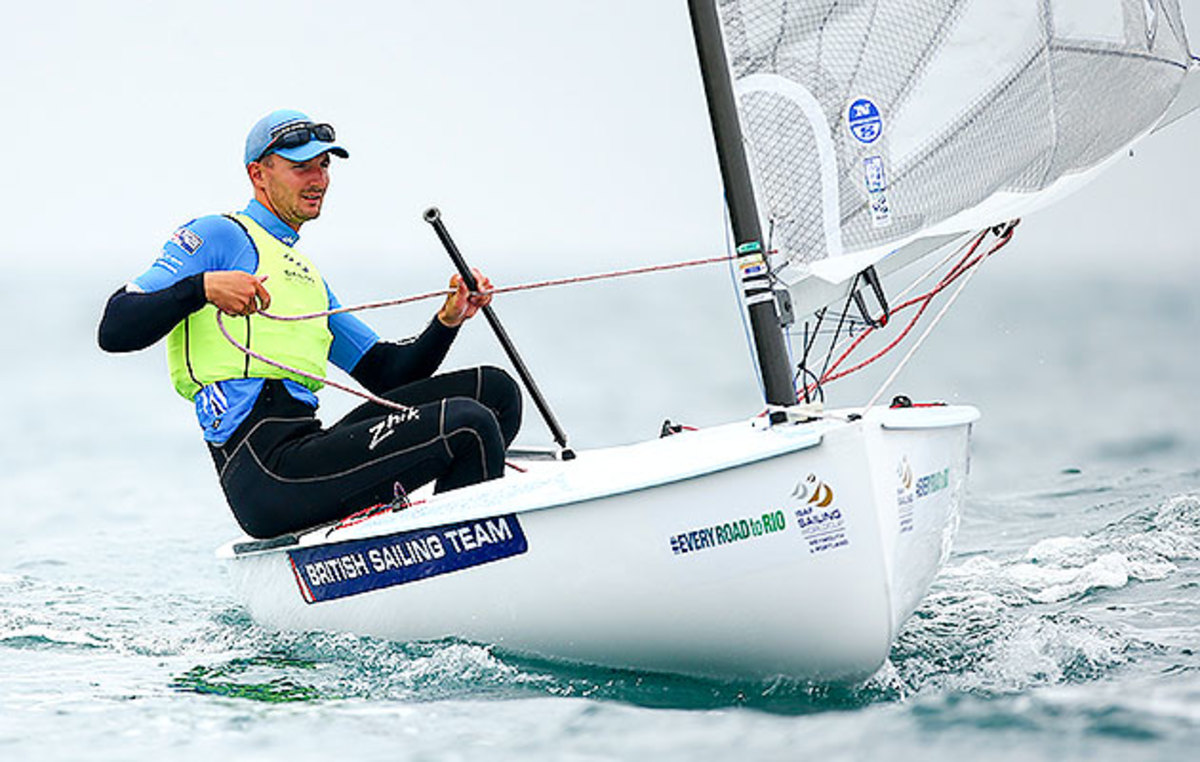Sailing preview: Despite dirty water, events will go on at Rio Olympics

Your teams on the go or at home. Personalize SI with our new App. Install on iOS or Android.
When the world’s best seafarers unfurl their sails in Rio de Janeiro, it won’t just be to compete against each other. They will also battle bacteria, sewage and floating garbage lurking in the waters of the notoriously polluted Guanabara Bay.
For decades Guanabara Bay served as a dumping ground for sewage and refuse from Rio’s favelas, making an ideal breeding ground for viruses and bacteria, not to mention the Zika virus. When Rio was awarded the Olympics back in 2009, city officials promised to have the bay sparkling by the Opening Ceremonies; later, they admitted that complete purification would take another 20 years to complete.
To mitigate pollution, “eco-barriers” were installed in the mouths of open-air sewage streams in June to act as artificial sieves. Additionally, during the 11 days of sailing competition helicopter-guided rubbish collection boats will clear the bay of floating trash obstacles. Conditions in Marina da Gloria, the harbor where several races begin, improved markedly in the 13 months since sailors at an Olympic test event complained of putrid stench and visible streams of human feces in the water, but the pollution problem persists in Guanabara Bay.
• RIO OLYMPICS PREVIEWS: Men’s basketball | Women’s basketball | Rugby | Diving | Tennis | Triathlon | Men’s soccer | Field hockey
An independent investigation by the Associated Press conducted a year ago found viral levels in the water approaching those of raw sewage, and ahletes face a 99% chance of infection after consuming just three teaspoons of Guanabara water. The World Health Organization claims that bacterial concentrations are not high enough to affect the health of athletes competing, but World Sailing advised athletes to keep their mouths closed while racing and scrub down all equipment with alcohol and antiviral gels after each race.
No matter the condition of the water, 380 athletes from 66 nations are qualified to compete in Rio across the 10 events. Only four countries—Brazil, France, Great Britain and the United States—have qualified sailors to compete in each event.
While the United States has not won an Olympic sailing medal since the Beijing Olympics in 2008, women’s 470 pair Annie Haeger and Brianna Provancha are determined to end that drought. The two met at Boston College and paired up in the 470 in November 2010 before graduating in ’12. Since then, Haeger and Provancha have dominated the international circuit, winning the Olympic test event in Marina da Gloria last August.
• The Longest Run: Trials and tribulations of first-ever Olympic Refugee Team
The Olympic sailing competition features 10 events on six types of boats: Laser (one-person dinghy), RS:X (one-person windsurfing craft), Finn (heavyweight one-person dinghy), 470 (single-hull two-person boat), 49er (two-person skiff resembling a manta ray) and Nacra 17 (multi-hull catamaran). The mixed gender nature of the Nacra 17 race sets sailing apart from other Olympic sports, making it one of just four sports where men and women compete against each other.
Each event begins with fleet races that serve as qualification for the medal round—12 for RS:X, 49er and Mixed Nacra 17, 10 for 470, Laser and Finn. For each fleet race, boats are assigned points based on their placement (1 point for first, two points for second, three points for third etc). The 10 boats with the lowest scores move on to the medal race, where the point system is doubled (2 points for first, four points for second, six points for third etc). The medals are then awarded to sailors with the lowest composite scores from all races, making it possible for a boat to win the medal race but not strike gold.

Athletes to watch
Giles Scott, Great Britain
Currently ranked No. 1 in the world in Men’s Finn, Scott looks poised to follow in the gilded wake of fellow Brit sailing legend Ben Ainslie, who won the previous three gold medals in the event. Scott has finished first in all but one of his races in 2016 and comes into Rio fresh off of a Sailing World Cup victory at Weymouth & Portland in June. He’ll have to fend off London bronze medalist Jonathan Lobert of France, currently ranked second in the world.
Marina Alabau Neira, Spain
Alabau Neira is no stranger to Olympic success. After finishing just off the podium in fourth in her Olympic debut in 2008, Alabau Neira captured gold in London. Consistent performances put her at No. 4 in the world despite not finishing higher than fourth in 200 Grade ISAF races in 2016. While not as dominant now as she was in the run up to the 2012 Olympics, don’t count her out for a podium finish.
• Life after Bolt: New stars of track and field ready for Olympic spotlight
Peter Burling and Blair Tuke, New Zealand
This duo of Kiwis is the most unstoppable pairing in the sport of sailing. While competing in the Men’s 49er skiff class, Burling and Tuke have won each of their last 26 regattas since taking home silver medals at the London games in 2012. Thanks to their unprecedented dominance streak they’ve topped the world rankings for all of 2016 and don’t plan on leaving Rio with anything less than gold.
Gold-medal events
Aug. 14—Men’s and Women’s RS:X
Aug. 15—Men’s Laser and Women’s Laser Radial
Aug. 16—Men’s Finn and Mixed Nacra 17
Aug. 17—Men’s and Women’s 470
Aug. 18—Men’s 49er and Women’s 49er FX
